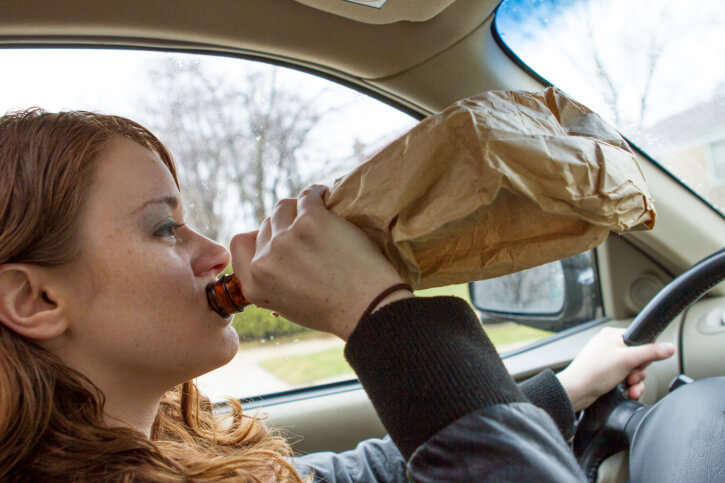
Stopped for DUI in Alabama: 6 Things to Know
If you are convicted of DWI in Alabama, an interlock ignition device is likely going to be something that will become a part of your life – at least for the length of your sentence. Lawmakers have made the use of the device mandatory for all repeat offenders and first-time offenders in certain circumstances: A driver whose blood alcohol content (BAC) is .15 or above, a driver who refuses the chemical test, a driver 21 or older with a passenger 14 or younger and a driver who causes an injury to someone else. In addition, drivers can request an interlock ignition device as a way to reduce the length of a driver’s license suspension. The device costs about $95 to install and $75 a month for regular testing and calibrations. The interlock ignition is recommended by the Centers for Disease Control and Prevention for all convicted drunk drivers.
If you are stopped for DUI in Alabama, here are six things you need to know.
1. Implied consent and sobriety testing
If you have a driver’s license in Alabama, you have given your implied consent to submit to chemical tests, if a law enforcement officer has probable cause to make a DWI arrest. The chemical tests include blood, urine and sophisticated breath tests and are requested after an officer has determined there is probable cause to arrest your for impaired driving. The tests generally are conducted at a police station. The implied consent law in Alabama does not cover sobriety field tests. In fact, it is perfectly legal to refuse a sobriety field test (though you should get out of your car, if the officer orders it). Many criminal defense attorneys say that the field tests are designed for anyone unfamiliar with them – even sober drivers – to fail.
2. Refusing the chemical test
What happens if you refuse the chemical test, requested by an officer after you have been arrested on suspicion of DWI? That would be violating the state’s Implied Consent Law and the motorist would face a 90-day driver’s license suspension for a first offense. That increases to a year’s suspension for a second refusal. Many criminal attorneys recommend against this tactic, explaining that the state can use your refusal against you during a trial. Many attorneys agree that the best way to fight a DWI arrest is by closely examining every detail of the stop and arrest by the officer involved.
3. Expect to be videotaped
Alabama, like most states, conducts drunk driver checkpoints at pre-determined locations from time to time. If you come across a checkpoint, it is extremely likely that officers are videotaping the operation. Other DUI stops may be videotaped as more and more law enforcement officers have cameras installed in their vehicles. According to criminal lawyers, saying and doing as little as possible during a DWI stop makes the most sense. The goal is to avoid looking as though you might be impaired on the video. As long as you are courteous and respectful, declining to answer questions other than to offer basic information is perfectly acceptable, lawyers say.
4. Blood alcohol content: more than .08 to worry about
Many drivers think of the .08 BAC as the only level to be concerned about. However, Alabama has a lower limit for drivers 21 and younger, .02 BAC. The state also has a stricter limit for anyone with a commercial driver’s license, .04 BAC.
5. DUI penalties in Alabama
The sentence for a first offense drunk driver conviction in Alabama is up to a year in jail – with no minimum mandatory period in jail. In addition, the fine is between $600 and $2,100. You will be required to attend DWI school and to have your license suspended for 90 days. The penalties increase for additional convictions within a 5-year period. A second offense DWI triggers a mandatory minimum sentence of 48 hours in jail – up to a maximum of 1 year. The fine is between $1,000 and $5,000, along with $100 for the Impaired Driver’s Trust Fund. Other mandatory penalties include a 1 year driver’s license suspension, and a minimum of 20 days of community service. A felony DUI is automatic on a fourth offense. The penalty is 1 to 10 years in prison, a fine of up to $10,100 and a driver’s license suspension for 5 years.
6. Total cost of a DUI in Alabama
A first-offense DWI conviction could easily cost $10,000 or more, according to criminal defense attorneys. Two of the unknowns include the fine – which can range from $600 to $2,100 and the cost of an attorney, which also will vary. Other costs to expect include $275 to have your driver’s license reinstated, $189 for the beginner alcohol education course and an estimated $800 to $1,000 to install and maintain an interlock ignition device for a year. There could be additional costs, particularly for individuals who lose their license as a result of the conviction and the increased cost of insurance – expect to pay two to three times what you are paying now.
This article is for informational purposes only. For legal advice, consult an attorney.
Related: